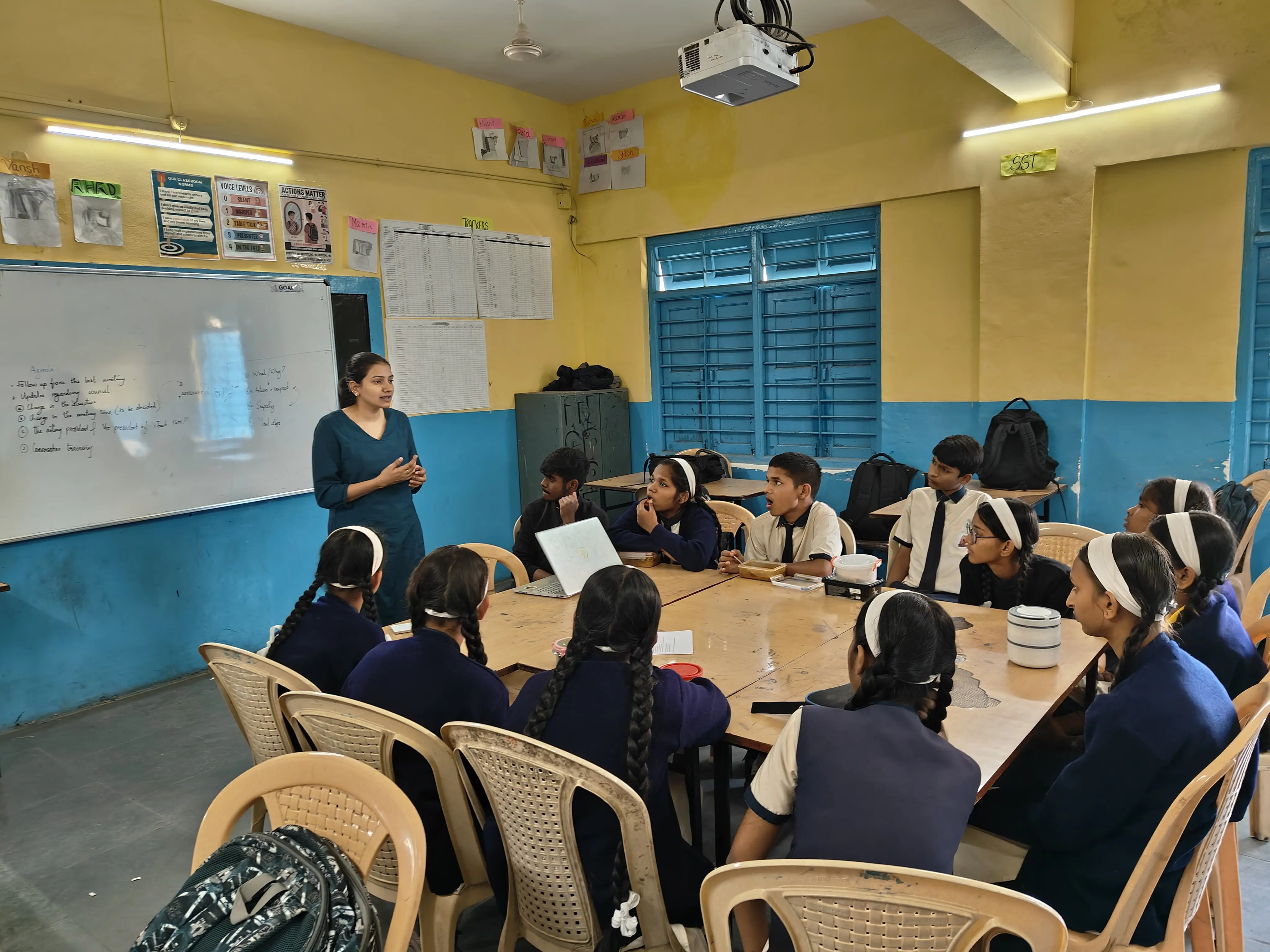The learners, aged between 15 to 17 years, study at iTeach, an NGO-run school located in Kondhwa, Pune, India. Our educational approach has primarily focused on building core academic competencies such as literacy, numeracy, and subject-specific knowledge. Until joining the Global Accelerator, we have not followed a formalized framework for developing non-academic skills. Although we have made consistent efforts to nurture essential life skills in our students, such as effective communication, active listening, and a mindset of aiming high. We have not previously adopted a specific rubric or structured program for skill development. Our aim is to equip students not only with academic proficiency but also with the confidence, problem-solving abilities and interpersonal skills needed to thrive in the real world.
The essential skill workshops helped us train 12 of our student council members across 3 prioritised skills - Speaking, Leadership and Teamwork. The impact was that our student council members were able to resolve student conflicts during classes and break times by having strong expectation re-setting conversations, they were also able to work as a team with their peers while fulfilling their duties as student leaders. Teachers felt supported as it helped in managing classroom behaviour, student council members were quick in asking students to step out to have a conversation and get them back inside class without much disturbance to the class. Our student leaders also grew in their conversational and leadership skills.

To embed Principle 1: Keep it Simple, the workshop series was structured into 10, one-hour weekly sessions, each following a clear and consistent three-part format. We began with short, focused lesson videos from the HUB to introduce key concepts of the Skill Step in a simple and accessible manner. This was followed by group work or discussions to reinforce understanding through peer interaction. Each session concluded with an exit slip, where students engaged in either execution rehearsals, reflections, or oral assessments. This scaffolded structure helped break down complex ideas into manageable steps, ensuring clarity and consistent engagement throughout the program. We also used the Skills Builder icons to reinforce the learning for our students

To embed Principle 2: Start Early, Keep Going, we consistently conducted sessions with the same group of 12 top-quartile students, who were close in age and learning level. Since the group was relatively small and homogeneous, a common session plan was used rather than personalized tracks. This ensured continuity in learning and allowed students to build steadily on their knowledge each week.
Additionally, the session plans were inclusive and thoughtfully designed for students across BYP, Grades 8, 9, and 10. They incorporated visuals, simple and accessible language, dedicated practice time, and oral exit slips to reinforce learning and assess understanding—all of which supported ongoing engagement and retention over the course of the program.

We assessed progress on essential skills through multiple tools, including oral assessments, reflection worksheets, and case study responses as part of our exit slips after each session. To measure the overall impact of the Skills Builder sessions, we also conducted an end-of-year survey—identical to the one administered before the program began—to capture growth over time. To ensure authenticity and a well-rounded understanding, we used a 3-way feedback approach, collecting responses from students themselves, their teachers, and program leads about the development of essential skills. This triangulated method helped us gather more perceptive, balanced, and meaningful insights into the effectiveness of the essential skills program.

Assessment documents included a mix of written tasks and role plays to ensure inclusivity and provide multiple ways for students to demonstrate mastery. Training sessions featured integrated groups, with visual documentation showing participation from BYP, Grade 8, and Grade 9 students. Additionally, Grade 10 student leaders were actively involved in supporting and facilitating learning for the younger students, helping explain concepts and foster peer-to-peer learning.

Students had the opportunity to practice these skills as active members of the student council, where they led peer interactions, planned meetings, and supported their classmates—mirroring the leadership and communication practices taught in the sessions. This ongoing, embedded practice helped students move beyond theoretical understanding and apply their learning in authentic, everyday situations.
























